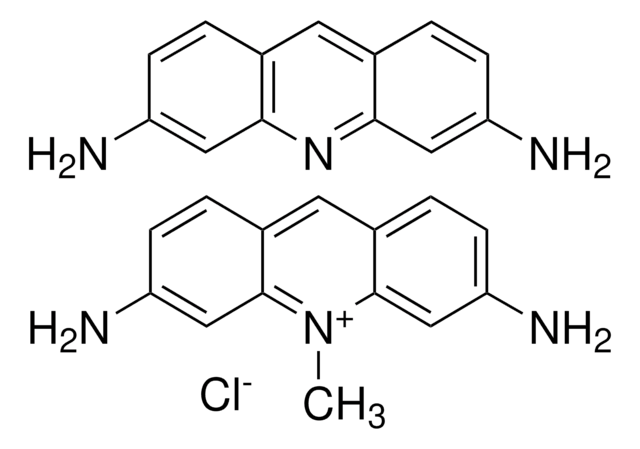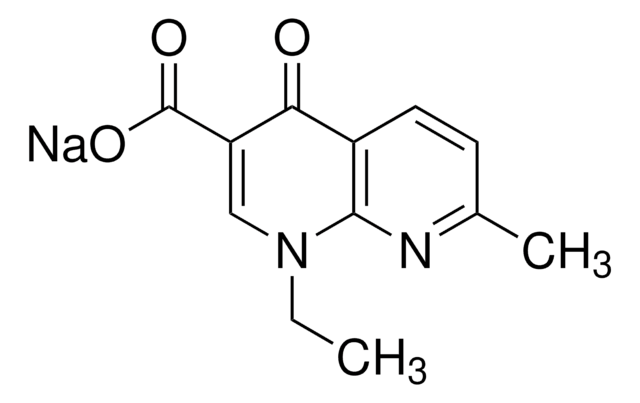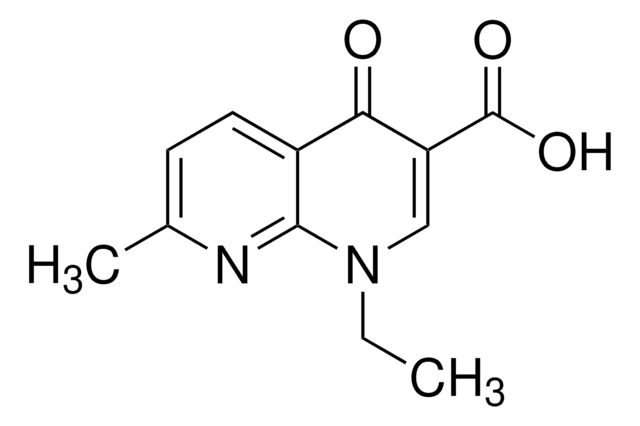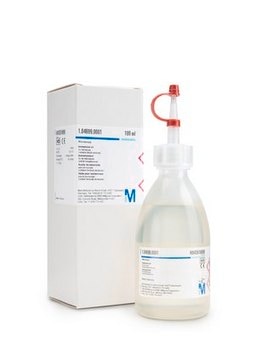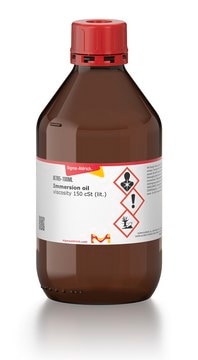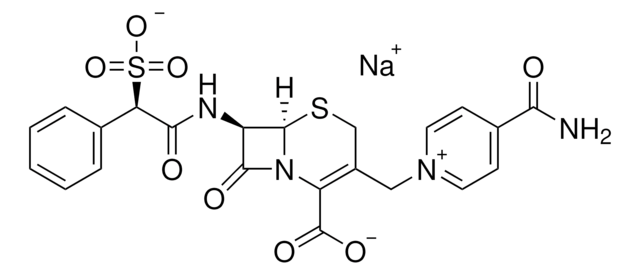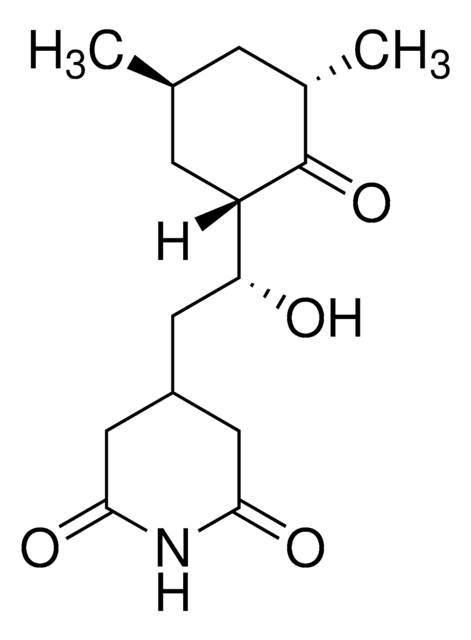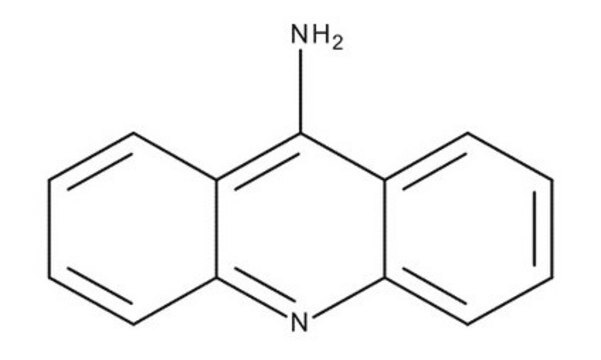A8251
Acriflavine hydrochloride
fluorescent dye
Synonym(s):
3,6-Diamino-10-methylacridinium chloride hydrochloride, Euflavine
About This Item
Recommended Products
Quality Level
form
powder
composition
Acriflavine HCL content, 10-50%
Proflavine HCL, 25-70%
color
faint brown to brown, and Orange to Dark Orange and Red to Very Dark Red
mp
260 °C (dec.) (lit.)
solubility
H2O: 1 mg/mL
application(s)
diagnostic assay manufacturing
hematology
histology
storage temp.
room temp
SMILES string
[Cl-].Cl[H].Cl[H].Nc1ccc2cc3ccc(N)cc3nc2c1.C[n+]4c5cc(N)ccc5cc6ccc(N)cc46
InChI
1S/C14H13N3.C13H11N3.3ClH/c1-17-13-7-11(15)4-2-9(13)6-10-3-5-12(16)8-14(10)17;14-10-3-1-8-5-9-2-4-11(15)7-13(9)16-12(8)6-10;;;/h2-8H,1H3,(H3,15,16);1-7H,14-15H2;3*1H
InChI key
MKLTXAHQKDVBLY-UHFFFAOYSA-N
Looking for similar products? Visit Product Comparison Guide
Related Categories
Application
Biochem/physiol Actions
Other Notes
signalword
Danger
hcodes
Hazard Classifications
Acute Tox. 4 Oral - Aquatic Chronic 2 - Eye Dam. 1
Storage Class
11 - Combustible Solids
wgk_germany
WGK 2
flash_point_f
Not applicable
flash_point_c
Not applicable
ppe
dust mask type N95 (US), Eyeshields, Gloves
Choose from one of the most recent versions:
Certificates of Analysis (COA)
Sorry, we don't have COAs for this product available online at this time.
If you need assistance, please contact Customer Support.
Already Own This Product?
Find documentation for the products that you have recently purchased in the Document Library.
Customers Also Viewed
Our team of scientists has experience in all areas of research including Life Science, Material Science, Chemical Synthesis, Chromatography, Analytical and many others.
Contact Technical Service
